Using data to guide decision-making in therapy

Harnessing the Power of Data in Modern Therapy
In recent years, the integration of data analytics into mental health and therapeutic practices has revolutionized the way clinicians diagnose, treat, and monitor their patients. This shift towards data-informed decision-making enhances personalization, efficacy, and efficiency in therapy, aligning with the broader movement toward precision medicine. With technological advances in digital tools, artificial intelligence, and big data, mental health professionals now have unprecedented opportunities to improve outcomes, ensure ethical standards, and support continuous improvement in clinical practice.
Understanding Data-Driven Decision-Making in Therapy
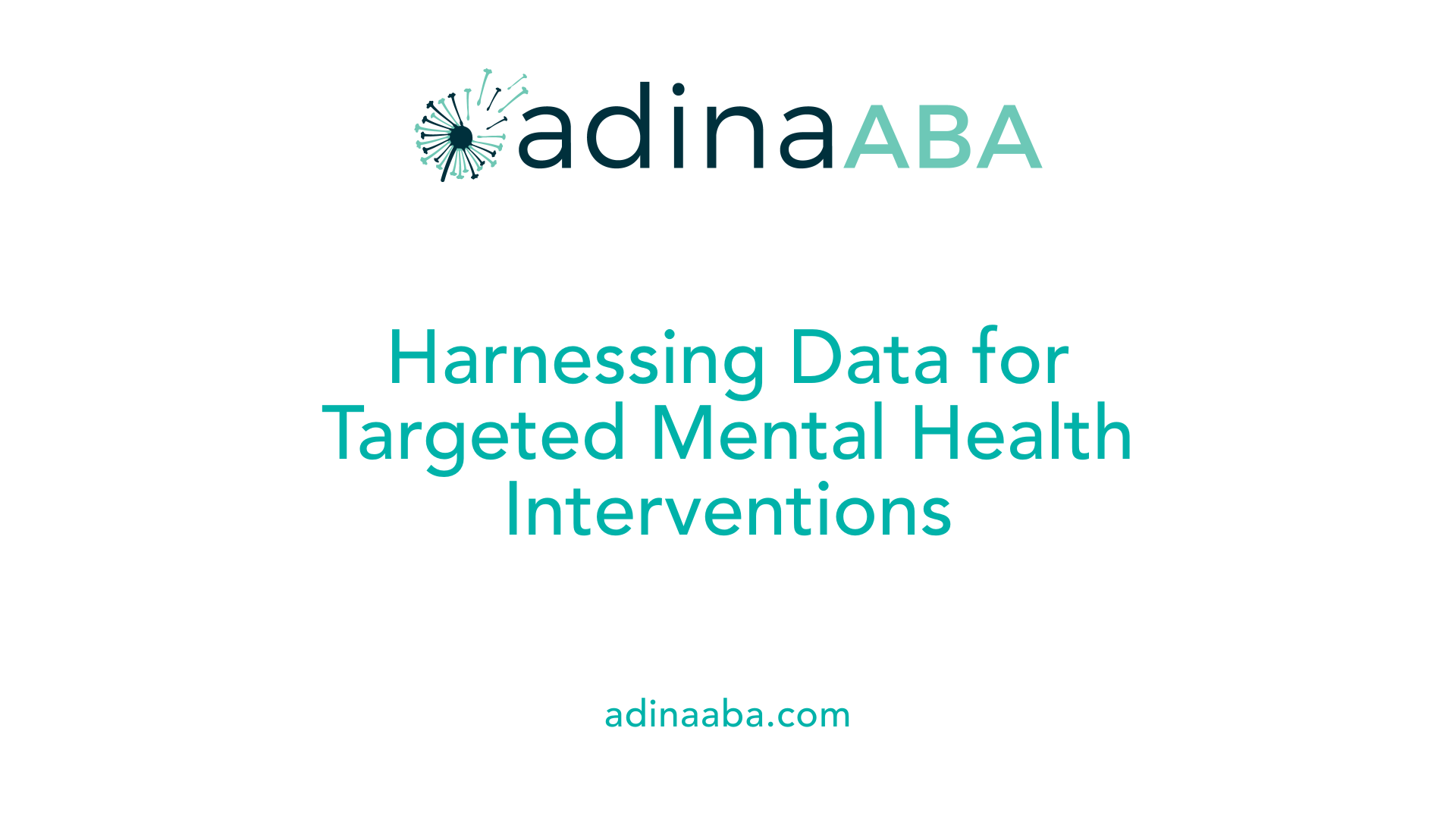
What is meant by 'data-driven decision-making' in the context of mental health treatment?
Data-driven decision-making in mental health treatment involves the systematic collection, analysis, and interpretation of various types of information—both quantitative and qualitative—to guide clinical decisions. This approach uses tools such as standardized assessments, client feedback, and electronic health records to generate valuable insights about a patient's progress and needs.
By employing advanced analytics, predictive algorithms, and real-time monitoring systems, clinicians can identify patterns and relationships that might not be obvious initially. This enables them to tailor interventions more effectively, make early diagnoses, and adjust treatment strategies based on ongoing data.
In addition, engaging mental health professionals and support staff in analyzing this information helps ensure that insights are relevant, reliable, and actionable. It facilitates a more precise and personalized approach to care, improving outcomes and resource utilization.
Overall, data-driven decision-making empowers clinicians with a comprehensive evidence base, helping them to develop targeted, effective, and adaptable mental health interventions. This approach not only enhances treatment success but also supports policy planning, resource allocation, and continuous improvement within mental health services.
Future Trends and Innovations in Data Utilization for Mental Health Care
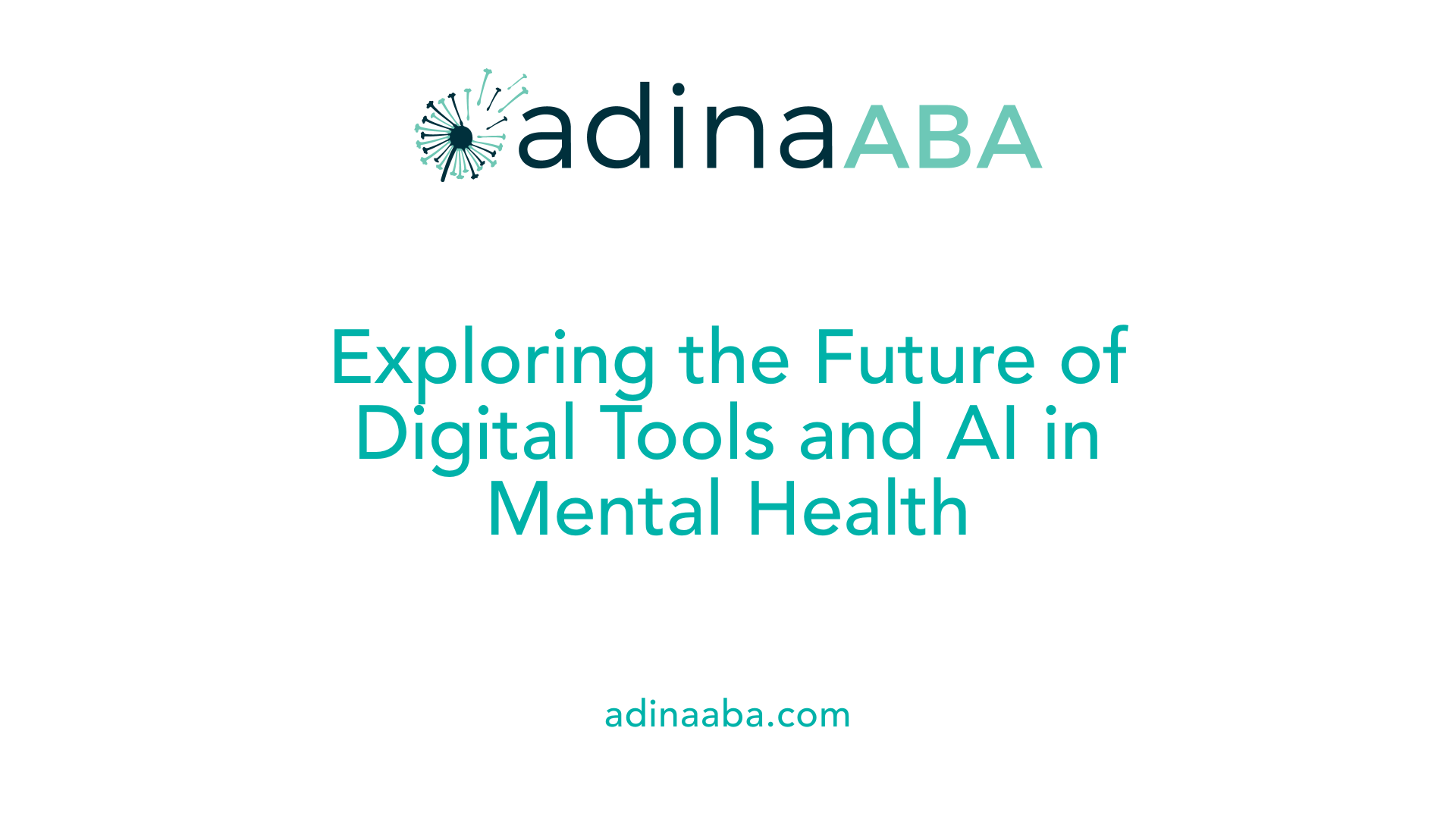
What are the future trends and innovations in utilizing data for mental health care?\n\nEmerging technological developments are poised to revolutionize mental health care by enhancing diagnosis, treatment, and monitoring. Advances in digital phenotyping—collecting behavioral and physiological data through smartphones, sensors, and wearables—allow for continuous, real-time assessment of mental health conditions.\n\nArtificial Intelligence (AI) and predictive analytics are central to these innovations. Machine learning models are being refined to predict risks such as relapse or crises, enabling preemptive intervention. Large language models and generative AI can customize therapy content, simulate virtual therapists, and offer early detection of mental health issues, although concerns like bias and safety remain.\n\nWearable devices and remote monitoring tools are increasingly integrated into care pathways, capturing data such as heart rate variability, activity levels, sleep patterns, and facial expressions. These modalities provide objective insights into mood fluctuations and behavioral changes outside clinical settings.\n\nDigital phenotyping and virtual reality (VR) are emerging as promising assessment and treatment tools. VR environments facilitate exposure therapy for anxiety or trauma, delivering validated, immersive experiences. Combining VR with physiological monitoring allows for tailored interventions based on individual responses.\n\nThese innovations exert a significant impact, enabling more personalized, precise, and accessible mental health support. As these technologies evolve, they hold the potential to improve outcomes, reduce stigma, and optimize resource use. However, ethical considerations, regulatory approval, data privacy, and equitable access will be critical to harnessing these advancements fully.
Challenges and Solutions in Implementing Data-Driven Strategies
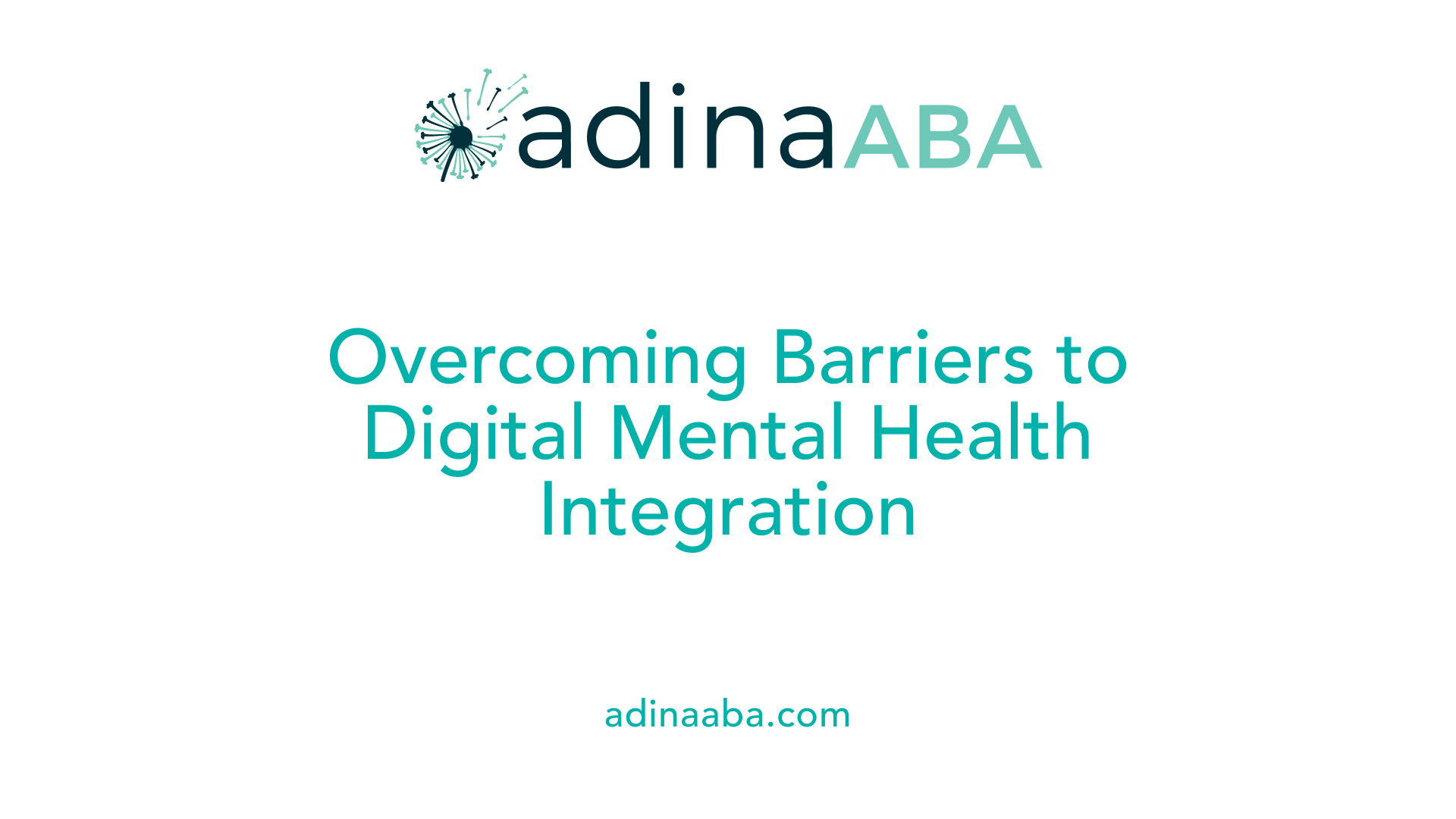
What challenges exist in implementing data-driven strategies in therapy, and what solutions are available?
Implementing data-driven techniques in mental health care and therapy has the potential to significantly improve personalized treatment, monitor progress effectively, and enhance outcomes. However, several obstacles stand in the way of widespread and effective adoption.
One major challenge is data privacy and security concerns. Protecting sensitive mental health information is paramount, especially when integrating digital tools and AI systems. Regulatory gaps and the need for strict compliance with standards such as HIPAA complicate the safe handling of patient data. To address this, establishing clear regulatory guidelines and robust encryption methods are essential.
Data quality and integration pose technical hurdles as well. Therapy data often come from various sources, including standardized assessments, progress notes, and client feedback. Ensuring accurate, consistent, and interoperable data streams requires standardized formats and careful validation processes.
Clinician training and organizational barriers also impact implementation. Many practitioners lack familiarity with digital tools or are hesitant to shift from traditional methods. Providing comprehensive training programs and demonstrating the practical benefits can facilitate acceptance. Organizational change management, including leadership support and resource allocation, further aids integration.
Ethical and regulatory issues come to the forefront with emerging technologies like AI-powered diagnostics and virtual interventions. Concerns about transparency, bias, and accountability necessitate the development of ethical frameworks and oversight bodies to evaluate digital tools’ safety and efficacy.
Strategies to overcome these barriers include establishing standardized reporting and regulatory systems, investing in clinician education, and encouraging co-design approaches. Involving diverse patient populations during development ensures the tools meet real-world needs and promote equitable access.
Further, fostering collaboration among policymakers, technologists, clinicians, and patients helps craft sustainable and ethically sound digital mental health systems. These collaborative efforts can facilitate continual evaluation and refinement of digital strategies, ensuring they remain effective, safe, and accessible.
Data Supporting Personalized and Evidence-Based Interventions
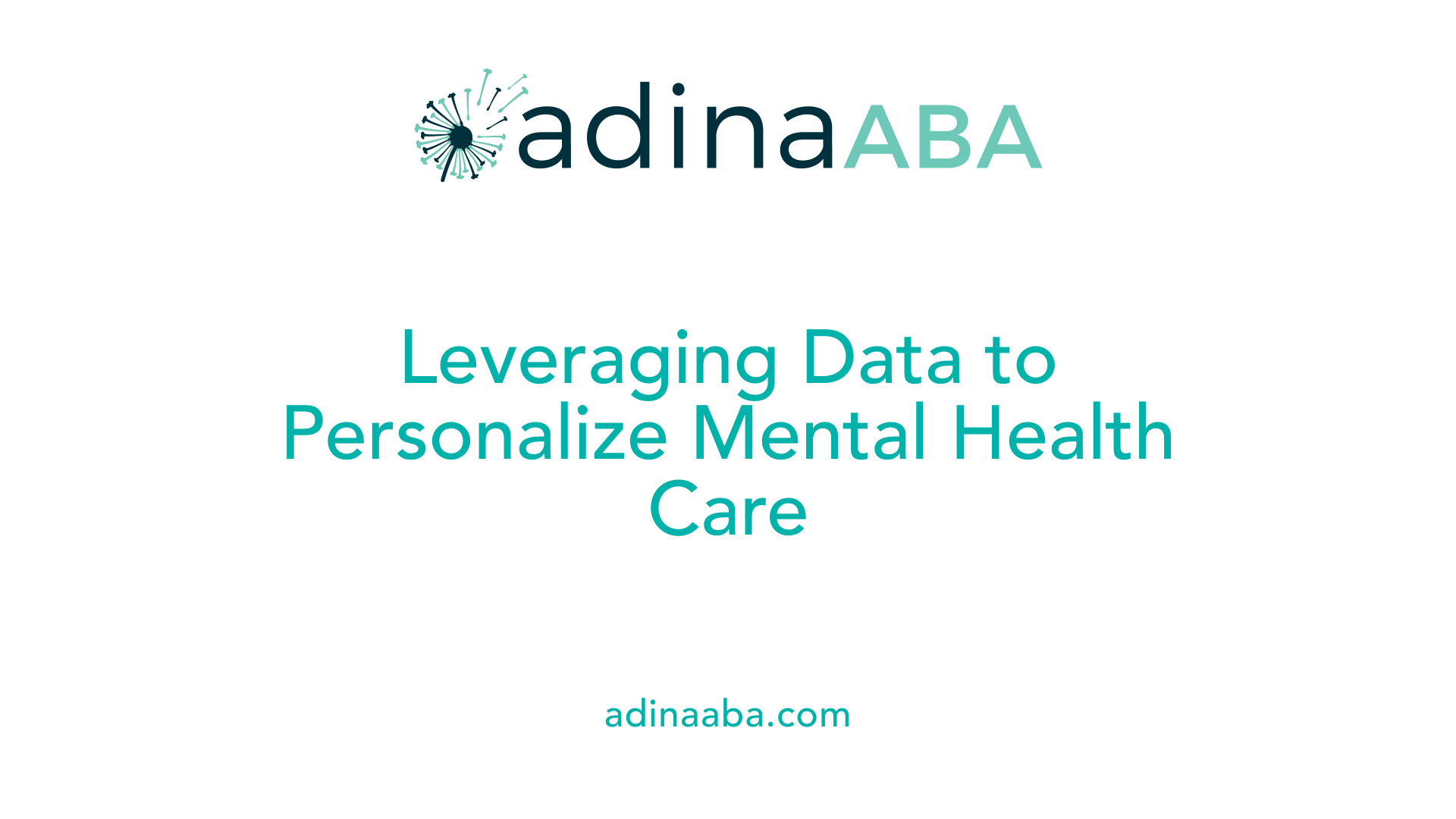
How does data support personalized and evidence-based mental health interventions?
Data plays a crucial role in shaping individualized mental health treatments. By collecting continuous, real-time information through digital tools, wearable devices, and digital phenotyping, clinicians gain objective insights into a patient's symptoms, behaviors, and physiological states. These data points help move beyond reliance on clinical intuition alone.
Advanced technologies like machine learning and AI analyze vast datasets—including genetic, environmental, and behavioral factors—to forecast risks and determine which interventions might work best for each patient. Predictive models assist clinicians in selecting tailored strategies, improving treatment precision.
Outcome measurement tools, such as psychometric assessments, offer ongoing feedback on symptom changes and treatment effectiveness. This feedback allows therapists to adjust interventions dynamically, ensuring they match the evolving needs of the individual.
Furthermore, decision support systems integrate diverse data streams, aiding clinicians in translating complex information into practical, personalized care plans. Overall, utilizing data enhances the accuracy, efficacy, and scalability of mental health treatments, fostering interventions that are finely tuned to each person's unique recovery journey.
Ethical Considerations in Data Use for Therapy
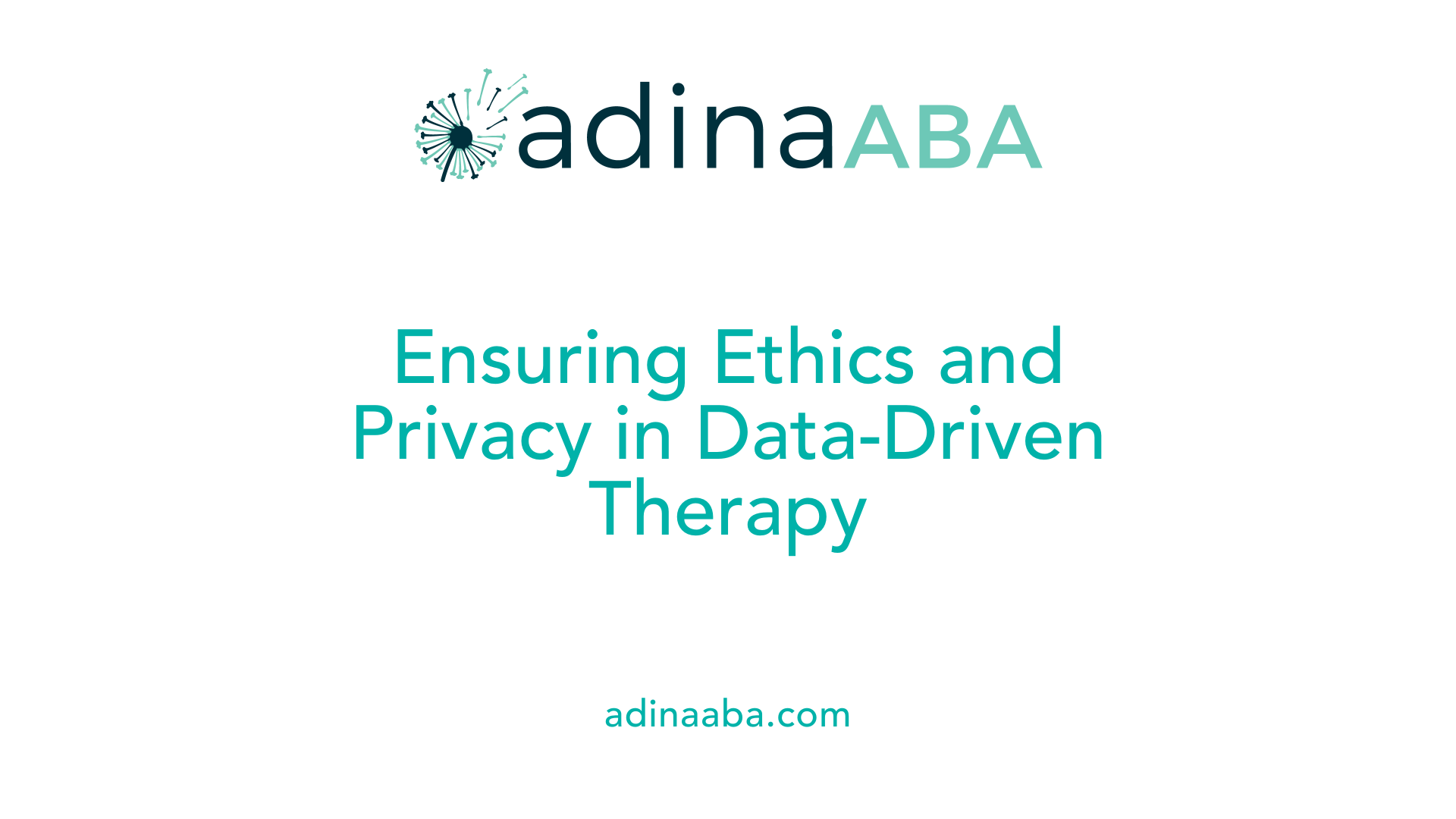
What are the ethical considerations when using data for therapy decision-making?
Using data in therapy involves multiple ethical aspects to ensure patient rights and well-being are protected. First, confidentiality and data security are paramount. Therapists and technology developers must safeguard sensitive information, strictly following privacy laws such as the Health Insurance Portability and Accountability Act (HIPAA). Secure encryption methods and access controls are essential to prevent unauthorized data access.
In the informed consent process, patients should be clearly informed about what data is being collected, how it will be used, and who might access it. Transparency helps patients understand their role and rights, fostering trust in digital tools and data handling procedures.
Addressing bias and fairness in algorithms is another critical concern. Machine learning models and predictive analytics can unintentionally perpetuate biases if trained on unrepresentative data. Ensuring fairness involves rigorous testing of algorithms across diverse populations to prevent disparities and maintain equitable treatment.
Respecting patient dignity and autonomy is fundamental. Patients should have control over their data, including options to review, modify, or delete their information. Digital tools should support, not override, individual decision-making and personal preferences.
Safeguarding against misuse of data includes preventing commercial exploitation or discrimination based on health information. Clear policies and regulatory oversight are required to avoid harms arising from misappropriation or malicious use of data.
Involving service users in the development and evaluation of digital interventions is crucial. Their feedback ensures that solutions are aligned with patients' needs, cultural contexts, and ethical standards. Engaging patients helps promote ethical integrity, trust, and more effective mental health care driven by respectful, transparent practices.
Case Studies Demonstrating Data-Driven Decision-Making in Therapy
Can you provide examples or case studies demonstrating effective data-driven decision-making in mental health treatment?
A notable example involves a 16-week digital therapeutic study that combined wearable sensor data with a mobile app to treat depression and anxiety. This approach allowed clinicians to monitor physiological indicators such as heart rate variability and activity levels in real time. By integrating this objective data with evidence-based cognitive-behavioral therapy (CBT) techniques, therapists could personalize interventions to match each patient's physiological responses and symptom patterns. The result was a significant reduction in symptoms, high patient engagement, and a low dropout rate.
This study also demonstrated the benefit of ongoing data collection, which enabled dynamic adjustments to treatment plans. In addition to symptom reduction, secondary benefits included improved quality of life measures and greater treatment adherence.
Other successful case studies feature crisis intervention apps that employ natural language processing (NLP) to evaluate risk in real time, helping responders identify and prioritize urgent cases. Digital mental health platforms like Germany’s DiGAs incorporate digital therapeutics into routine healthcare, leveraging big data and machine learning to optimize treatment selection and monitor progress.
Collectively, these examples highlight how utilizing big data, digital sensors, and artificial intelligence enhances personalized, scalable mental health care, ultimately leading to better outcomes and higher patient satisfaction.
What are some practical frameworks for integrating data into therapy practice?
Effective integration of data into therapy relies on structured frameworks such as outcome measurement models and clinical decision support systems that utilize routinely gathered information from assessments, progress notes, and standardized tools like PHQ-9 or GAD-7.
Digital tools, including dashboards and remote monitoring devices, facilitate ongoing tracking of clients’ symptoms, behaviors, and adherence to treatment plans. This real-time data allows therapists to make timely, objective assessments and adjustments.
Wearables, smartphones, and apps collect behavioral and physiological data, supporting a more dynamic treatment process. For example, activity patterns and mood fluctuations can inform therapeutic focus or timing of interventions.
Ethical considerations are paramount; therapists must ensure confidentiality, obtain informed consent, and be culturally sensitive when collecting and analyzing data.
By combining these sources within legal and ethically sound practices, clinicians can individualize care, improve monitoring of progress, and enhance overall treatment effectiveness.
Toward a Future of Intelligent Mental Health Care
The integration of data-driven decision-making into therapy marks a transformative era in mental health care. By leveraging advanced technologies and thoughtful ethical practices, clinicians can deliver more personalized, effective, and accessible treatments. Overcoming current challenges through innovation, regulation, and education will be key to unlocking the full potential of these tools. As the landscape continues to evolve, embracing a data-informed paradigm will not only enhance individual outcomes but also contribute to a more efficient, equitable, and insightful mental health ecosystem. The future of therapy is increasingly intelligent, responsive, and tailored—powered by the vast potential of data.
References
- Using Real-world Data for Decision Support
- Precision Mental Health and Data-Informed Decision Support in ...
- Data-driven practice - TheraPlatform
- The Power of Data-Driven Decision Making in Healthcare - C8 Health
- Use of Data to Inform Decision-Making - CSG Justice Center
- Creating Evidence for Practice Using Data-Driven Decision Making
- Benefits of AI and Data-Driven Approaches to improve Mental ...
- Data Driven Decision Making Framework (DDDM) - OT Theory
- How Data-Driven Decision-Making Improves Patient Outcomes
- Therapists Should Embrace Data for More Precise Care - Eleos Health
More Resources
Expert Clinicians
Get started today ->

.jpg)

.jpg)
.jpg)
.jpg)
.jpg)